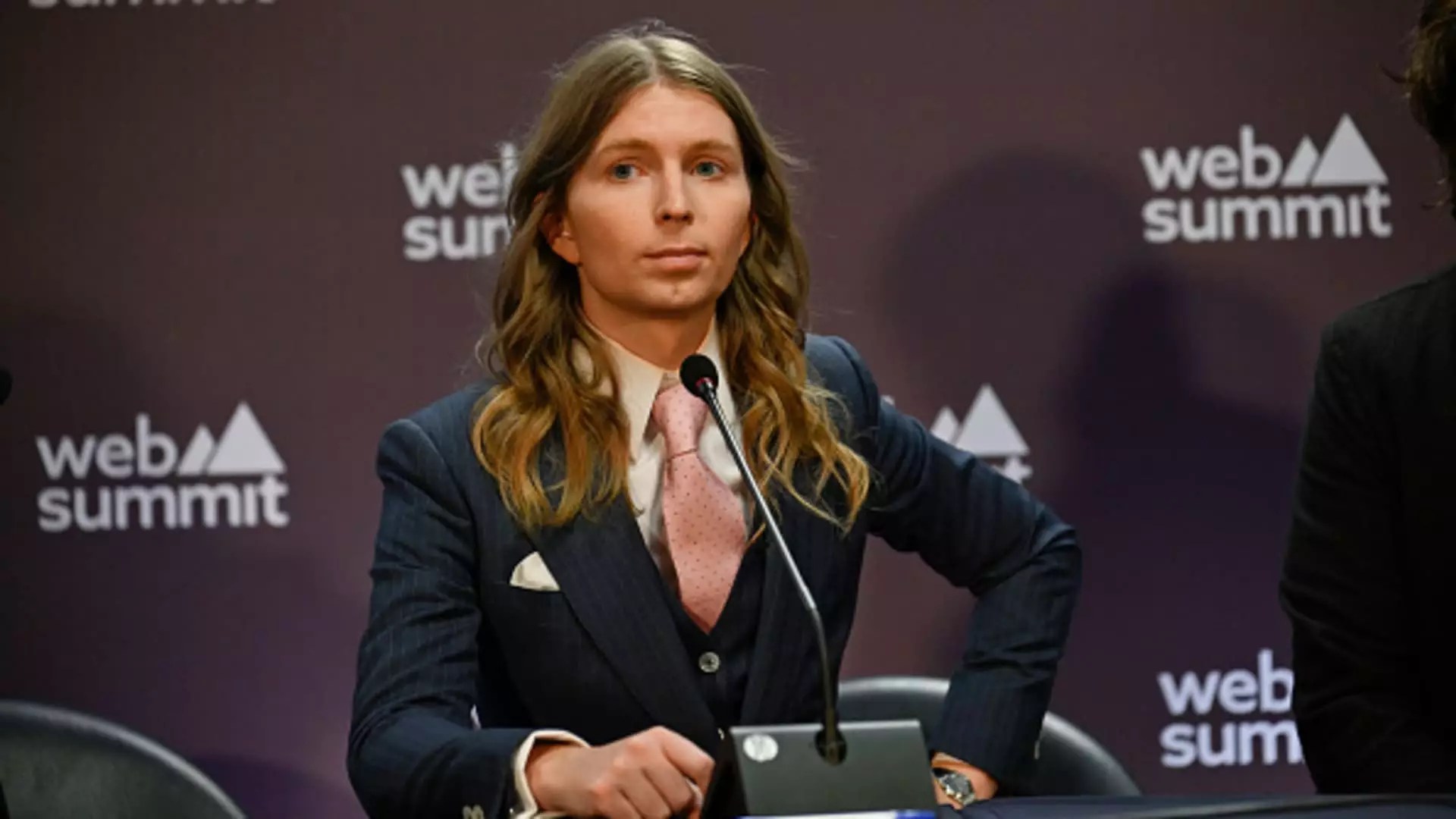In the contemporary landscape of the internet, where information flows freely yet control is increasingly consolidated, Chelsea Manning emerges as a thought-provoking voice. The former Army intelligence analyst and whistleblower highlights what she perceives as a dominant threat to online discourse: censorship. Manning’s insights are particularly relevant as they come at a time when individuals grapple with the fine line between safeguarding free speech and managing harmful content on digital platforms. In an appearance at the Web Summit tech conference in Lisbon, Manning underscored the need for a more decentralized internet, which she believes could empower individuals and protect them from overarching controls imposed by tech giants.
Manning points out that the modern form of censorship often manifests through algorithmic biases rather than outright bans. She argues that the contemporary digital environment can condition users to accept certain social media monopolies as the norm, thereby perpetuating a system in which engagement-driven content often takes precedence, overshadowing marginalized voices. This observation invites a deeper analysis of the role technology plays in facilitating or inhibiting free expression, provoking the question: how do we balance the algorithmic responsibilities of platforms with the need for a truly democratic space for expression?
Central to Manning’s discourse is the idea of “decentralized identification.” This innovation could allow users to maintain control over their digital identities and the data they produce, potentially rendering the relationship between individuals and corporations less exploitative. By implementing decentralized systems similar to those from the early days of the internet, Manning believes that we can democratize information access and counteract the monopolistic tendencies of current social media platforms.
The necessity for a “better social contract” is also a prominent theme in Manning’s argument. In a digital realm where users often unknowingly surrender their data to corporations, a new framework is required—one that fundamentally recalibrates how data is shared and monetized. Manning’s advocacy for enhanced encryption methods symbolizes a shift toward a user-centered approach, empowering individuals to take greater control over their online experiences rather than merely consenting to opaque terms set by tech companies.
Reflecting on her own experiences, Manning notes that the information landscape today is riddled with both unprecedented access and overwhelming misinformation. Unlike the past, where secrets were closely guarded by institutions, current trends show that governments seem less invested in concealing information and more focused on controlling public narratives through misinformation strategies. For whistleblowers operating in this environment, the challenge lies not just in revealing hidden truths but in distinguishing verifiable facts from falsehoods amidst a barrage of digital noise.
Manning conveys that the dilemma facing whistleblowers has evolved from a binary notion of secrecy versus transparency to a more nuanced struggle of discernment. The abundance of information at our fingertips does not necessarily equate to our ability to sift through it effectively. Instead, it complicates the quest for authenticity in an era rife with digital deception. This perspective opens the floor for a rich debate on how modern technologies can be adroitly utilized to illuminate truths rather than obscure them.
As digital interactions continue to shape societal norms and behaviors, Manning’s contributions spur vital discussions around the future of free expression and individual rights online. Her vision for a decentralized internet is not merely about a technical reboot but embodies a philosophical shift that prioritizes personal agency and responsibility in the digital age.
To construct a more equitable online environment, it will be imperative for stakeholders—including policymakers, technology firms, and civil society—to engage in collaborative efforts that foster transparency, accountability, and genuine openness. As we contemplate the road ahead, Manning’s insights serve as a clarion call to re-evaluate our relationship with technology, urging us to cultivate a digital space that champions freedom, integrity, and communication untainted by the threats of censorship and manipulation.


Leave a Reply